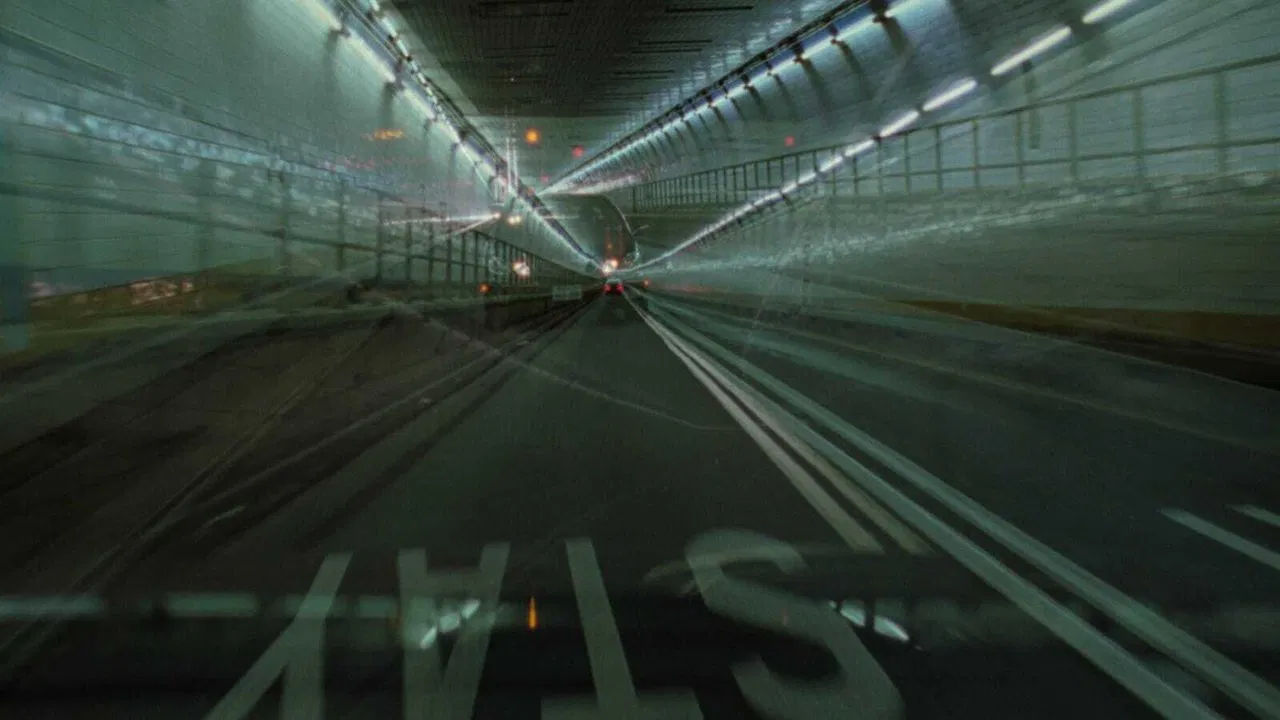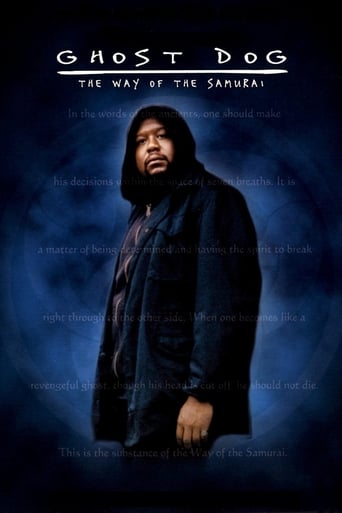

Many rappers like RZA are obsessed with Japanese culture, and samurais in particular. It would be easy to reduce Ghost Dog to a sort of a rapper's fantasy, but it's much more than that. In fact I see it more as a comedy remake of Leon by Luc Besson, both heroes following the same path. Jarmusch says it's a remake of Le Samurai with Alain Delon, but although the story is closer to it than to Leon, it's really different in mood. Ghost Dog is slow, often absurd, poetic, and funny. The old school mafia guys are just hilarious and pathetic, against a fluid and strange Ghost Dog. You really feel the solitary life of Ghost Dog, and there are a few touching moments: his relationship with Raymond, the pigeons, all enhanced by a beautiful soundtrack and cinematography. It's not a movie for everyone, it is very slow, European in style but with a strong American background : the city, the music, the people... It's just a gem of a movie.
... View MoreAll The Reviews Claim That "This Is The Best Movie You Have Never Seen" And They Are Right ... Whitaker (An Excellent Actor) Is A Hit-man For The Mob Who Calls Himself "Ghost Dog" And Lives His Life According To The Philosophy Of The Ancient Samurai ... The Idea Of The Movie (In My Opinion) Is To Give The Newer Generations A Way To Understand And Relate To The Ancient Customs Of The Samurai ... The Movie Brilliantly Achieves This Goal ... The Movie Is Full Of Subtle Innuendos That Are Marvelous If You Take The Time To "Watch" The Movie ... Directed With A Care That Is Rarely Seen In Movies ... A Must Seen On Any List ...
... View MoreThe eponymous protagonist of Jim Jarmusch's 1999 film GHOST DOG is an African-American hit-man (Forest Whitaker) working for an Italian mafia in New Jersey and living according to the Hagakure, Japan's samurai code. After a hit goes wrong through no fault of the assassin's own, his mafia liaison Louie (John Tormey) is sympathetic, but explains that his superiors now want Ghost Dog dead. The film follows Ghost Dog's revenge and depicts a clash between two ancient tribes that both seem out of date in this modern world: Ghost Dog's samurai code and Italian mafia ideas of loyalty.Jarmusch has always been open about the fact that he soaks up a huge number of inspirations from earlier films, books, and music and then lets them reflect in his own work. Any cinephile will instantly recognize Jean-Pierre Melville's 1967 film "Le Samouraï" as the point of departure for GHOST DOG. In Meville's classic, a Parisian hired assassin lives according to a strict code. But Melville didn't really know much about Japan, and even the quotation from a samurai text at the beginning of his film was just made up by Meville himself. Jarmusch seems to have decided, "OK, I'll show you a hired-assassin film that's *really* rooted in the code of the Samurai". Forest Whitaker quotes from Hagakure throughout the film, and there are also references to the work of Akira Kurosawa.But GHOST DOG is not a remake, and Jarmusch takes the basic premise in a very individual direction. There's a lot of humour here, something missing from the serious Melville inspiration. In casting for the mafia dons, Jarmusch chose faces as brutal and distinctive as Dick Tracy's rogues gallery: Henry Silva as the don, and Cliff Gorman and . But Jarmusch then gives them the occasional zany line that cracks that chilling façade. Isaach de Bankole plays a supporting role as a French-speaking Haitian immigrant and Ghost Dog's best friend, a role that is pure comic relief because the man doesn't speak English and Ghost Dog doesn't understand French, but they always manage to understand each other.Until the late 1990s, Jarmusch had mainly been known as a fairly low-budget independent filmmaker writing cute little stories about personal relationships in low-key American life. Jarmusch's America was consistently depicted as run-down neighbourhoods and overgrown vacant lots. With its generous budget, large cast and special effects, GHOST DOG marked a huge leap forward in Jarmusch's work. Still, it maintains Jarmusch's interest in America as a land of urban blight and seedy underbellies: most of the film takes place in an ugly New Jersey urban setting. Furthermore, instead of being glamorized, the Italian mafia is depicted as a spent force, mainly elderly men who can't rake in the cash and influence they used to, and even forced to pay protection money to Chinese newcomers. As the film reaches its shocking ending, the glamour is drained from Ghost Dog's warrior code, as well.The music for GHOST DOG was provided by RZA, at the time still best known as part of the Wu-Tang Clan. The music mainly consists of wordless beats, though, with actual rapping only at a few points. Personally, I find the use of hip-hop a weak point of the film (Jarmusch looks like an outsider looking in to this scene, unable to organically make it part of his own work), and RZA's insistence on appearing in the film itself disrupts the rhythm of the film's climax.
... View MoreThe best formula for making a movie is K.I.S.S. (keep it simple stupid).This movie keeps it simple and doesn't have a lot of complicated plot twists. It is straight forward and goes from point A to point B with out much problem.There are a couple of scenes which I believe could have been dropped, such as the "black bear hunters" and the "woman highway patrol". I really don't know why they left them in the movie. They really weren't needed and I think they bring the movie down a couple of notches.There were several other scenes which I think were just filler and thankfully I could fast forward through them. All of these "filler" scenes are the long drawn out "driving in the car with the radio on". Really? Was the script that short?There are extremely minimal special effects used. There is a lot of shooting (chest, legs, arms) but you don't see a ton of blood. The violence is very mild.There are some minor factual errors in the movie, which have already been stated on this website. There are others, but they aren't important enough to post.Acting 1 Directing .5 Plot 1 Action .5 Continuity 0 Factuality 03 of 6
... View More